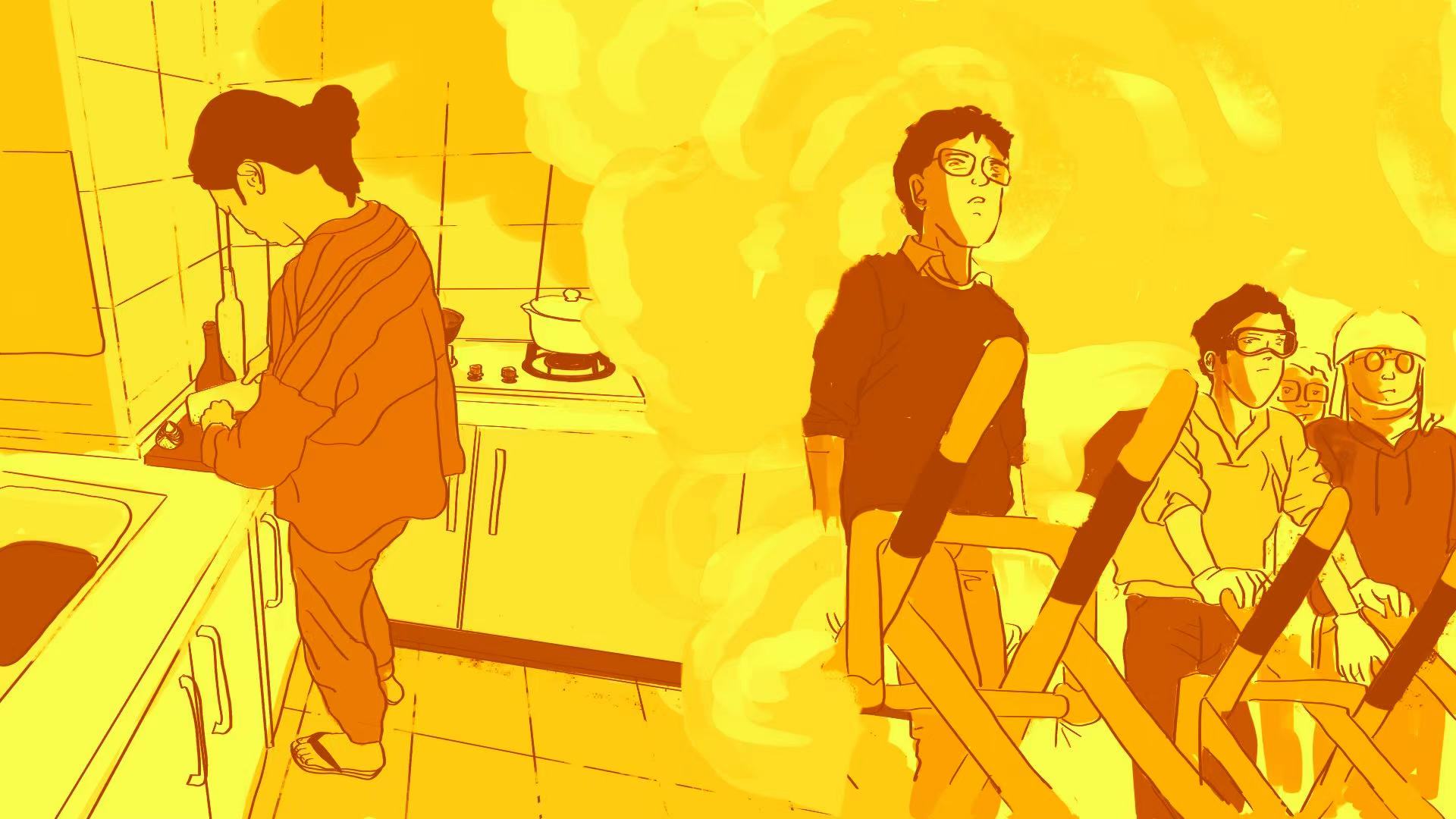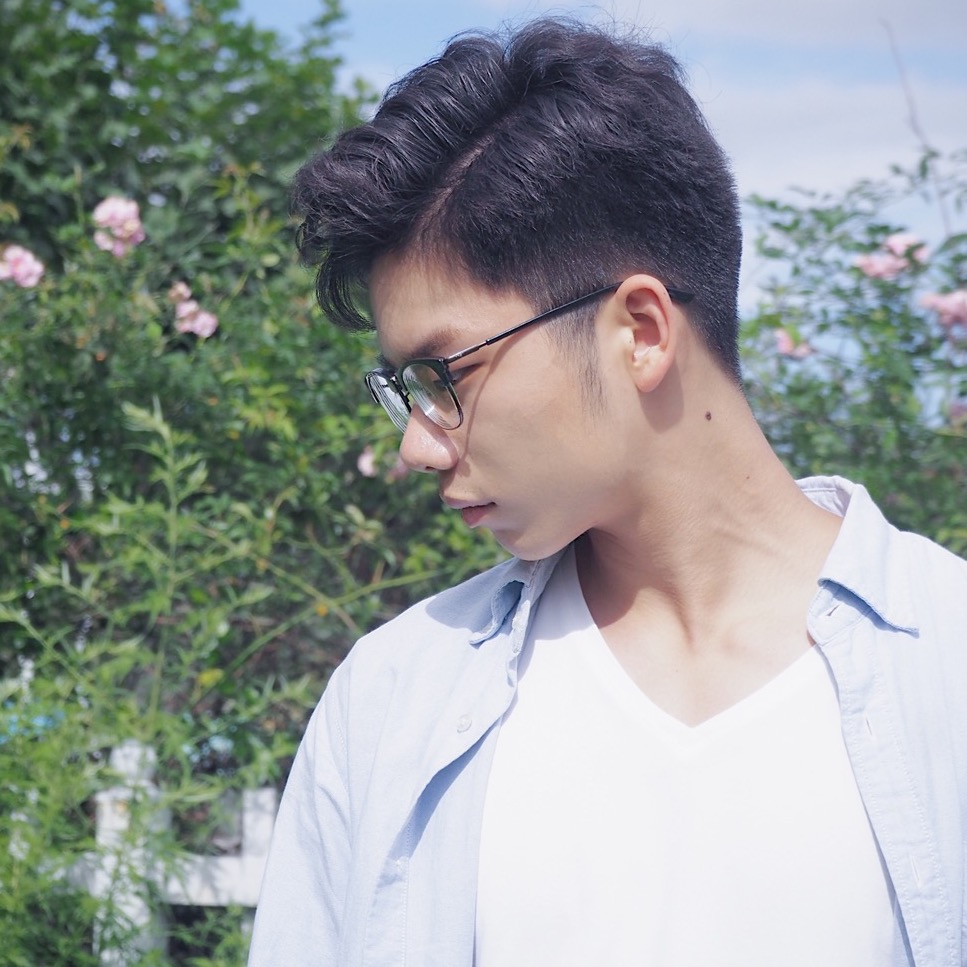A year and a half later, Hong Kong protest ‘mom’ remains in touch with her kids
Hong Kong’s protest movement in 2019 divided families. Many of the city’s young protesters are still finding ways to mend broken relationships.

Beginning in June 2019, Hong Kong’s pro-democracy protests not only disrupted daily life in the semi-autonomous city, but fractured families in which there were divided political views. Tens of thousands of teenagers went out to protest — while many of their parents opposed the protests back home.
That was the summer that Charlotte Ching felt like she suddenly had 50 children.
The 30-year-old woman, married without kids, kept seeing messages pop up on Telegram channels about young protesters who didn’t have money for food after spending it on protest gear, including helmets and protective clothing. She wanted to lend a helping hand.
“Hong Kong is a society with adequate food and clothing, so when I saw teenagers with empty stomachs, I felt sad and wanted to help,” she said.
In August, at 4 a.m., she picked up a 15-year-old girl in Mongkok and provided her food and shelter. The girl stayed at Ching’s for three nights. She was Ching’s first “kid.”
In the months after, Ching’s 40-square-meter apartment sheltered dozens of teenagers, with many of them calling her “mom.” Some said they would support her when she got old. “It’s so sweet and moving. They’re all good kids,” said Ching, who asked me to not include any other identifying information about her in this article.
“Society changed; the protest changed; the relationship between my kids and me may also change. But I don’t feel the loss. I can be happy for them in the distance.”
Divided families
Families were split during the unrest that began in the summer of 2019, but experts say domestic problems weren’t always a direct result of the protests. Instead, existing rifts may have been exposed, as parents sought ways to exercise authority and hierarchy during a time of uncertainty. Poor communication was also a factor, as parents and children lacked the proper language for discussing political issues that turned existential.
Edith Fung, now a 15-year-old in middle school, had been beaten, pepper-sprayed, and tear-gassed multiple times during the protest. She still suffers from post-traumatic stress disorder (PTSD), causing her to wake up at night, trembling with anxiety and with pain in her chest. During the protests, she received no support at home. One night, she received a text from her mother that read, “If you don’t want to come back, don’t come back at all.”
On August 31, 2019, Fung found Ching through a Telegram channel that was willing to connect “homeless” teenage protesters with homes.
“She looked after me like my mom, treating my wounds, cooking meals for me, caring for my feelings and pain,” Fung said. “I can talk with her about many things that I can’t discuss back home.”
Ching still remembers Fung vividly. “She was very young but independent, while still childish sometimes,” she said.
There were others. The kids seemed to come three at a time, staying on average a few days, squeezing into Ching’s small apartment and sleeping on sofa cushions. Ching cooked Cantonese home food that was well received.
There was a 16-year-old girl who was thrown out of her house and stayed at Ching’s for three nights. Ching suggested she have a patient and honest talk with her mother. Later, the girl texted Ching to say her mom agreed to a compromise, allowing her to peacefully protest as long as she returned home every night.
There was a 15-year-old boy who slept on Ching’s couch for three months and helped her clean the apartment. He had gotten into fights with his brothers due to the protests, and his parents called the protesters “mobs who threatened Hong Kong’s safety.”
Ching wasn’t alone. Dozens of networks and organizations coordinated resources through Telegram to help teenagers kicked out of their homes. It’s not clear how many people engaged in this network, but one organization, Good Neighbor, helped more than 400 teenagers in three months, connecting around 300 pro-democracy restaurants with 300 parents and delivering 23,000 meals.
Lingering psychological effects
A study by the Hong Kong Federation of Youth Groups in the fall of 2019 found that half (51.4%) of all Hong Kong students between the ages of 12 to 18 reported depressive symptoms. The study also found 41.7% of teenagers reported high stress, with 24% saying the stress came from the “anxious social atmosphere.” Another study by the University of Hong Kong found that half (49.4%) of respondents reported family conflicts during the protest.
“Many kids were already suffering because of the tension and violence on the streets, but when they returned home to face another round of quarrels, that may have generated a serious mental crisis,” said Tsang Chin-Kwok, director of the Samaritan Befrienders Hong Kong, a suicide prevention network.
On the other hand, Tsang said parents could be equally heartbroken when their kids left home. “You don’t want to lose your kids during the protest, right? But poor communication may cause you to lose your kids in a different way.”
“Having different political views should not be a reason to sever relationships,” Tsang said. “Love won’t disappear just because of the protests.”
Ironically, the COVID-19 pandemic may have forced some families back together, as parents and children were stuck with each other for long periods at home. But reconciliation won’t be easy, Tsang said, especially in families that haven’t opened up their lines of communication.
“What many parents want most is to ensure their kids’ safety, so instead of forcing them not to go out to protest — which you can’t — you could give them suggestions on how to keep safe when facing the chaos and violence on the street,” Tsang said. “Parents should also let kids know that they can always call them for help if anything happens, and come back home as a safe harbor.”
A slow return to normal?
In 2020, the double whammy of Beijing’s National Security Law and COVID-19 quieted the protests, but Ching has kept in touch with her kids, consoling them and encouraging them to study harder.
Recently, Ching reminisced about the Spring Festival in 2020, when she was surrounded by her “children” in her small apartment. They sat around having hotpot and lo-baak-gou, a pudding made of white radish, shrimp, and rice flour traditionally served during Chinese New Year.
This year’s lunar new year’s eve meal was quiet, with only herself and some close family. But Ching didn’t feel a loss. Instead, she expressed relief that families are recovering, and teenagers are going back to study.
“I’ve told them, ‘Not all protests are on the front line,’” Ching said, as a way to encourage them to keep up their grades. “I ask them, what kind of fighter do you want to become when you grow up? If you have enough knowledge and the ability to help society, you can influence other lives.”
Ching has tried to contact the real parents of many of her kids. Some have been receptive. Others, like Fung’s mother, have rejected Ching’s advances politely but firmly.
“With time, families are arguing less and calming down,” Tsang said. “But in their hearts, I think there are still some negative feelings.”
That’s the case with Fung. Her family sat around the dinner table during last month’s lunar new year celebrations, tiptoeing around conversation topics and avoiding contentious ones about politics. No one apologized for all the harsh words they exchanged in 2019.
“It takes time,” Fung said. “I don’t know how to express my feelings, and the way my parents care for me is wrong sometimes. But still, we are family, and we will live together.”
Olivia Wang contributed to this article.






